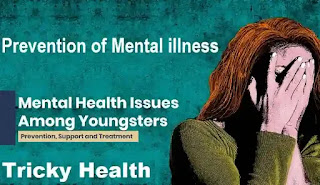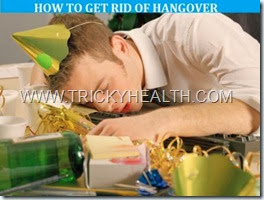The heart is an important organ in the human body, playing a crucial role in pumping blood and maintaining healthy blood circulation. However, like all other organs, the heart is also susceptible to various diseases and conditions that can affect its functioning and overall health. In this article, we’ll discuss the different diseases related to the heart, their causes, symptoms, and treatments.
1)
Coronary Artery Disease (CAD)
Coronary Artery Disease (CAD) is one of the most
common heart diseases, affecting millions of people worldwide. CAD is a
condition where the arteries that supply blood to the heart become narrow and
blocked, reducing the flow of oxygen and nutrients to the heart muscle. This
can lead to angina (chest pain), heart attack, and heart failure.
· Causes
of CAD include high blood pressure, high cholesterol, smoking, obesity, and
diabetes.
· Symptoms
of CAD include chest pain, shortness of breath, fatigue, and palpitations.
· Treatment options for CAD include lifestyle changes, such as healthy eating, regular exercise, quitting smoking, and reducing stress. Medications, such as aspirin, statins, and beta-blockers, can also be prescribed to lower cholesterol levels and improve blood flow. In severe cases, angioplasty or coronary artery bypass surgery may be recommended.
2)
Heart Valve Diseases
The heart has four valves that regulate blood
flow in and out of the heart chambers. If these valves become damaged or
malfunction, it can lead to heart valve diseases, such as stenosis (narrowing
of the valve) or regurgitation (leakage of the valve).
· Causes
of heart valve diseases include congenital heart defects, rheumatic fever, and
aging.
· Symptoms
of heart valve diseases include shortness of breath, fatigue, chest pain, and
heart palpitations.
· Treatment
for heart valve diseases depends on the severity of the condition and may
include lifestyle changes, medications, or surgery. In severe cases, valve
repair or replacement surgery may be necessary.
3)
Congestive Heart Failure (CHF)
Congestive Heart Failure (CHF) is a condition
where the heart becomes weakened and unable to pump blood efficiently, leading
to fluid buildup in the body. This can cause shortness of breath, fatigue, and
swelling in the legs, ankles, and feet.
· Causes
of CHF include CAD, heart valve diseases, high blood pressure, and viral
infections.
·
Symptoms
of CHF include shortness of breath, fatigue, and swelling in the legs, ankles,
and feet.
· Treatment for CHF includes lifestyle changes, such as healthy eating and regular exercise, as well as medications to improve heart function and reduce fluid buildup. In severe cases, a heart transplant may be necessary.
4)
Arrhythmias
Arrhythmias are abnormal heart rhythms caused
by electrical problems in the heart. This can lead to a rapid, slow, or
irregular heartbeat, which can be dangerous and life-threatening.
· Causes
of arrhythmias include congenital heart defects, heart disease, and high-stress
levels.
·
Symptoms
of arrhythmias include palpitations, chest pain, and fainting.
· Treatment for arrhythmias depends on the severity of the condition and may include lifestyle changes, medications, and surgery. In severe cases, an implantable cardioverter defibrillator (ICD) may be necessary to prevent life-threatening arrhythmias.
In conclusion, heart diseases are a major health concern and have a significant impact on the lives of people worldwide. Regular check-ups, a balanced diet, and an active lifestyle are some of the preventive measures one can take to avoid heart disease. Some of the common heart diseases include coronary artery disease, heart failure, arrhythmia, and hypertension. Early diagnosis and proper treatment can help prevent the progression of these diseases and improve the quality of life. It is crucial to seek medical attention if you experience any symptoms such as chest pain, shortness of breath, or palpitations. By spreading awareness about the importance of heart health and taking preventive measures, we can work towards reducing the impact of heart diseases and improving overall well-being.
FAQ Section:
1. What are the most common heart diseases?
The most common heart diseases include coronary
artery disease, heart valve disease, arrhythmia, heart failure, and
hypertension.
2. How does coronary artery disease develop?
Coronary artery disease develops when the blood
vessels that supply blood and oxygen to the heart become narrow or blocked.
This is typically due to the buildup of fatty deposits in the arteries.
3. Can heart valve disease be treated?
Yes, heart valve disease can be treated with
medication or surgery, depending on the severity of the condition.
4. How can arrhythmias be detected?
Arrhythmias can be detected through a range of
tests including an electrocardiogram (ECG), Holter monitor, and event recorder.
5. What are the common symptoms of heart failure?
The common symptoms of heart failure include
shortness of breath, fatigue, swelling of the legs, ankles and feet, rapid or
irregular heartbeat, and coughing or wheezing.
6. Can hypertension lead to heart disease?
Yes, hypertension or high blood pressure can lead
to heart disease by damaging the blood vessels and causing them to become
narrow or blocked.
7. What are the risk factors for heart disease?
Some of the risk factors for heart disease include
smoking, high blood pressure, high cholesterol, diabetes, obesity, family
history of heart disease, and sedentary lifestyle.
8. How can I prevent heart disease?
You can prevent heart disease by making healthy
lifestyle choices such as exercising regularly, eating a healthy diet, quitting
smoking, managing stress, and getting regular check-ups.
9. What are the different treatments available for
heart disease?
The treatments available for heart disease include
medication, surgery, lifestyle changes, and rehabilitation.
10. Is heart disease
preventable?
Yes, heart disease is largely preventable by making healthy lifestyle choices and getting regular check-ups. Early detection and management of risk factors can greatly reduce the risk of developing heart disease.






